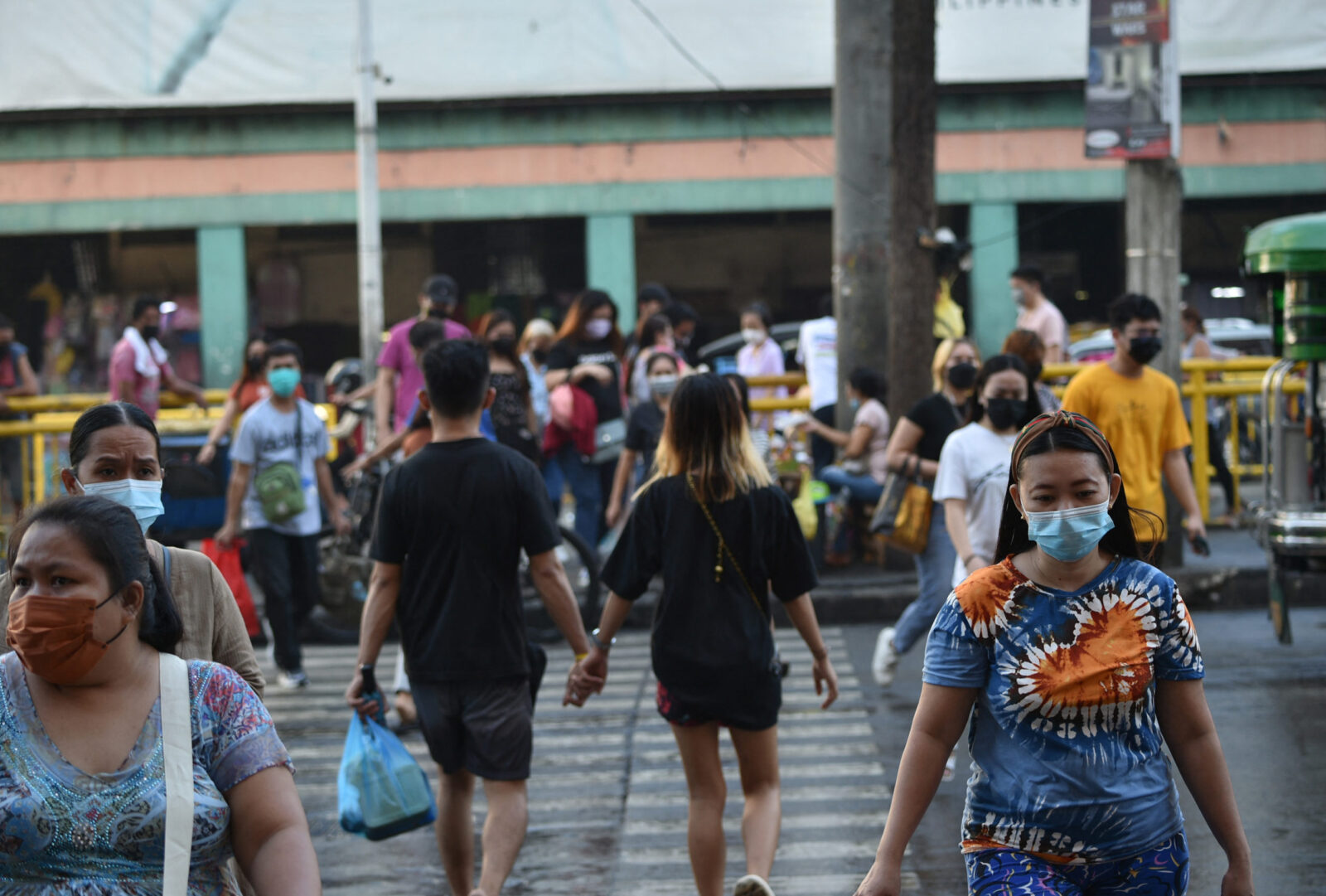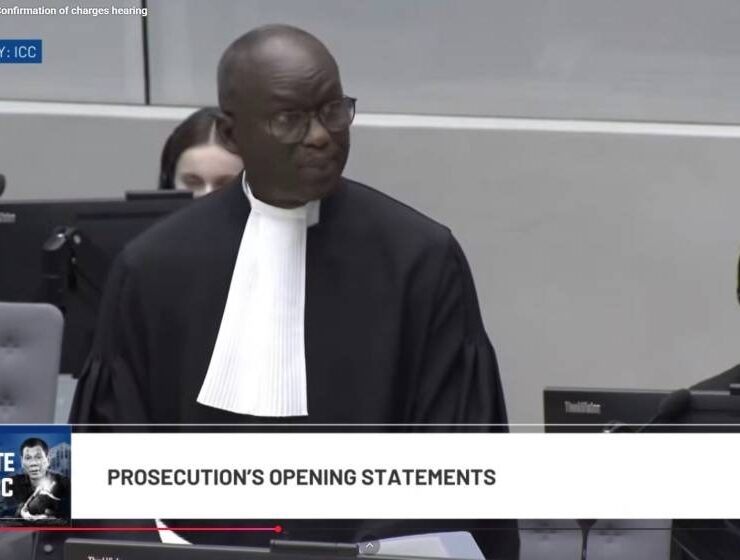Mixed signals: ‘Konektadong Pinoy’ draws backers, critics

A bill seen as critical to pushing the Philippines well into the digital sphere and help the country catch up with its neighbors in terms of wider connectivity for Filipinos and faster internet speed is receiving both support and opposition from various industry and citizens groups.
Six technology-based groups on Saturday expressed support for the Konektadong Pinoy bill (KPB) but warned against its localization provision, which required that digital data be stored or processed only within the country’s territory.
Among the opponents, consumer group Citizen Watch Philippines urged President Marcos to veto the bill, saying that it would allow unvetted players, including potentially foreign-controlled entities, to operate critical infrastructure without oversight.
This could lead to “serious security vulnerabilities and even a national crisis situation,” it said.
In January this year, Mr. Marcos certified the proposed law called “Act Establishing a Comprehensive and Inclusive Data Transmission and Connectivity Framework for the Philippines,” as an urgent bill.
By early June, Congress ratified the reconciled version of the bill, paving the way for its transmittal to Malacañang for the President’s signature.
It proposes four key reforms: lift franchise requirements for data transmission and internet service providers, manage the radio spectrum more effectively to enhance service quality and coverage, require telecom companies to share infrastructure with new companies, and set performance standards to ensure effective implementation and protect Filipino consumers.
With reservations
The six tech groups—Global AI Council Philippines, Blockchain Council of the Philippines, Cybersecurity Council of the Philippines, Data Center Association of the Philippines, Fintech Philippines Association and Go Digital Philippines—issued a joint statement backing the bill, but with reservations.
The KPB seeks to streamline the registration process to build and operate data transmission infrastructure without requiring a legislative franchise, they noted.
“These changes will lower the cost of internet services, accelerate network rollout, and expand access, especially in underserved areas,” the groups said.
However, they want the provision on “data localization or sovereignty” removed.
The bill was ratified by both houses of Congress on June 9. During the bicameral committee discussions, however, a provision related to data localization was added, according to the IT and Business Process Association of the Philippines in a June 30 statement.
“Requiring that data be stored or processed only within Philippine territory will drive up business costs, disrupt operations and limit access to technologies, such as cloud computing and AI (artificial intelligence),” the statement said.
“This would hurt SMEs (small and medium enterprises), deter investment and weaken the competitiveness of the Philippine IT-BPM (information technology and business process management) and digital sectors.”
Balisacan’s pitch
In his column in the Inquirer on June 12, Socioeconomic Planning Secretary Arsenio Balisacan said that the country’s telecommunications sector remained “hampered by high costs, low accessibility, and underwhelming speeds,” especially in comparison to some of its partners in the Association of Southeast Asian Nations.
He said the proposed law would be a “transformative step toward bridging this digital divide and accelerating national development.”
Telecom reforms and improved digital infrastructure is at the core of the Philippine Development Plan 2023-2028, Balisacan said.
“A digitally connected Philippines means more inclusive growth, competitive industries, efficient governance, and broader access to essential services like education and health care,” he said.
Balisacan lamented the higher costs and slower speeds of both fixed and mobile broadband services in the country, compared to its neighbors in Southeast Asia.
Still, ‘lax rules’
He said the bill would introduce “comprehensive reforms” to the telecommunications industry that would “open the market, enhance competition, reduce network rollout costs, and increase the quality and availability of digital services.”
Citizen Watch, isn’t upbeat about the bill in its present form.
The proposed measure may make the Philippines more vulnerable to potential cybersecurity crimes and weaken regulatory oversight, as new players can enter the market even without proving their financial and technical clout, it said last month.
It cited the problems caused by the “lax rules” in the entry of Philippine offshore gaming operators (Pogos) which led to a “national security fallout” and crimes.
PCTO opposed
The Philippine Chamber of Telecommunications Operators (PCTO), composed of the country’s leading telcos, also disapproves of the bill.
The group said that not only could the measure harm Filipino consumers, it could also “stifle investment in the telecommunications sector.”
Under its current version, new industry players only need to register with the National Telecommunications Commission. Given this, PCTO said that foreign-controlled entities may obtain crucial data.
“Data transmission is central to telecoms and removing the franchise requirement undermines RA 11659, or the Public Service Act, which already liberalizes foreign ownership in public services, and weakens the oversight of the government of critical information infrastructure,” it said.
Fair competition
Worried that the current framework could hinder fair competition, PCTO said the bill needed amendments.
It said that the exemption of data transmission providers from securing a congressional franchise and a certificate of public convenience and necessity would create “an unequal regulatory environment, violating the principle of fair competition.”
The exemption could also eliminate “crucial safeguards that protect public interest by ensuring that telecommunications providers meet specific standards and obligations to provide quality and reliable services,” PCTO said.
The group also warned of an “explosion of cybersecurity incidents that threaten national security,” given the “relaxation of regulatory scrutiny” on the part of data transmission providers.
Undermine safety
Citizen Watch convenor Orlando Oxales urged Mr. Marcos to veto the bill and to have it refiled and improved in the 20th Congress with stronger safeguards.
“While the intention to expand internet access is commendable, we cannot support a bill that undermines public safety, weakens regulatory oversight, and exposes Filipinos to cybersecurity threats,” Oxales said. —WITH A REPORT FROM INQUIRER RESEARCH





















